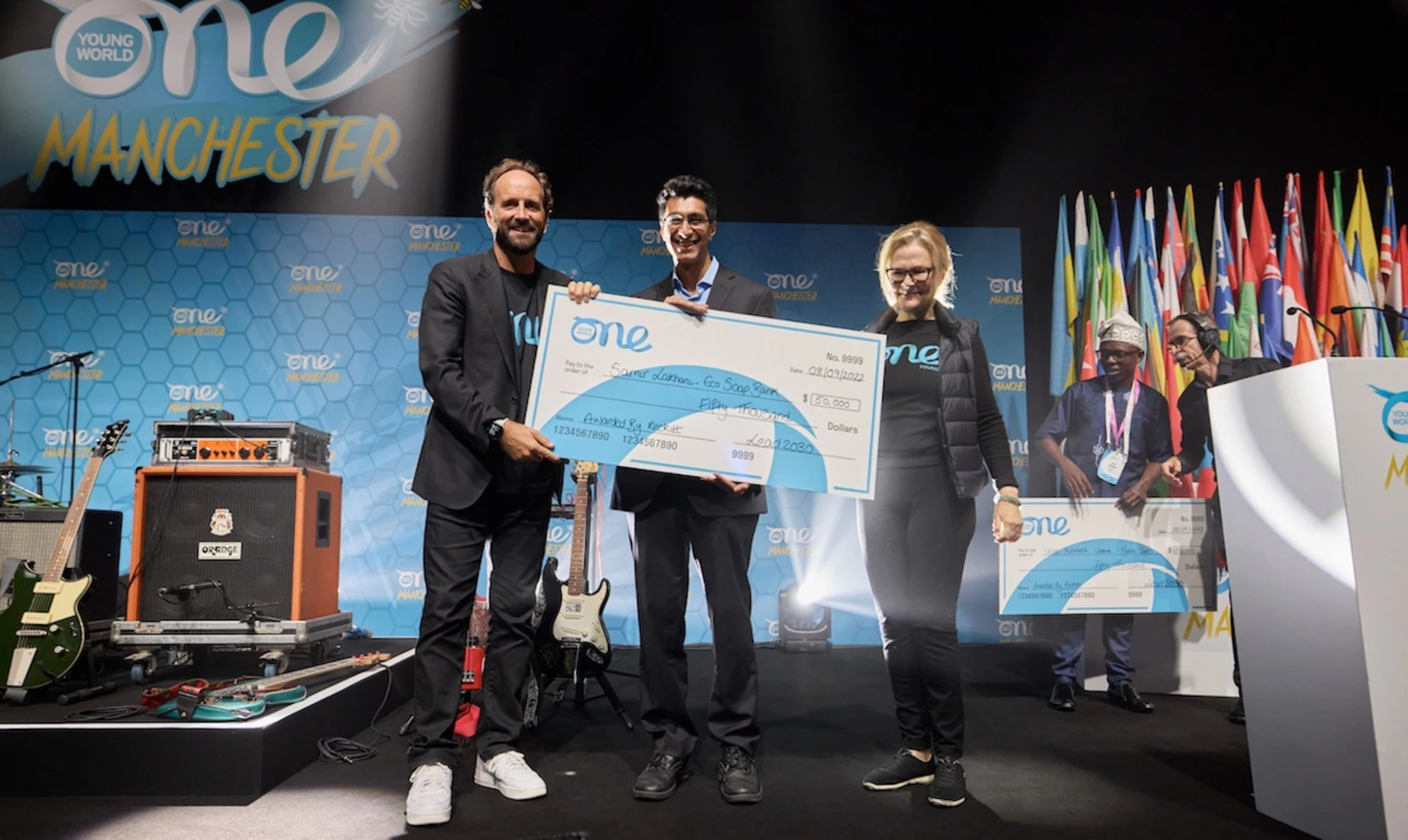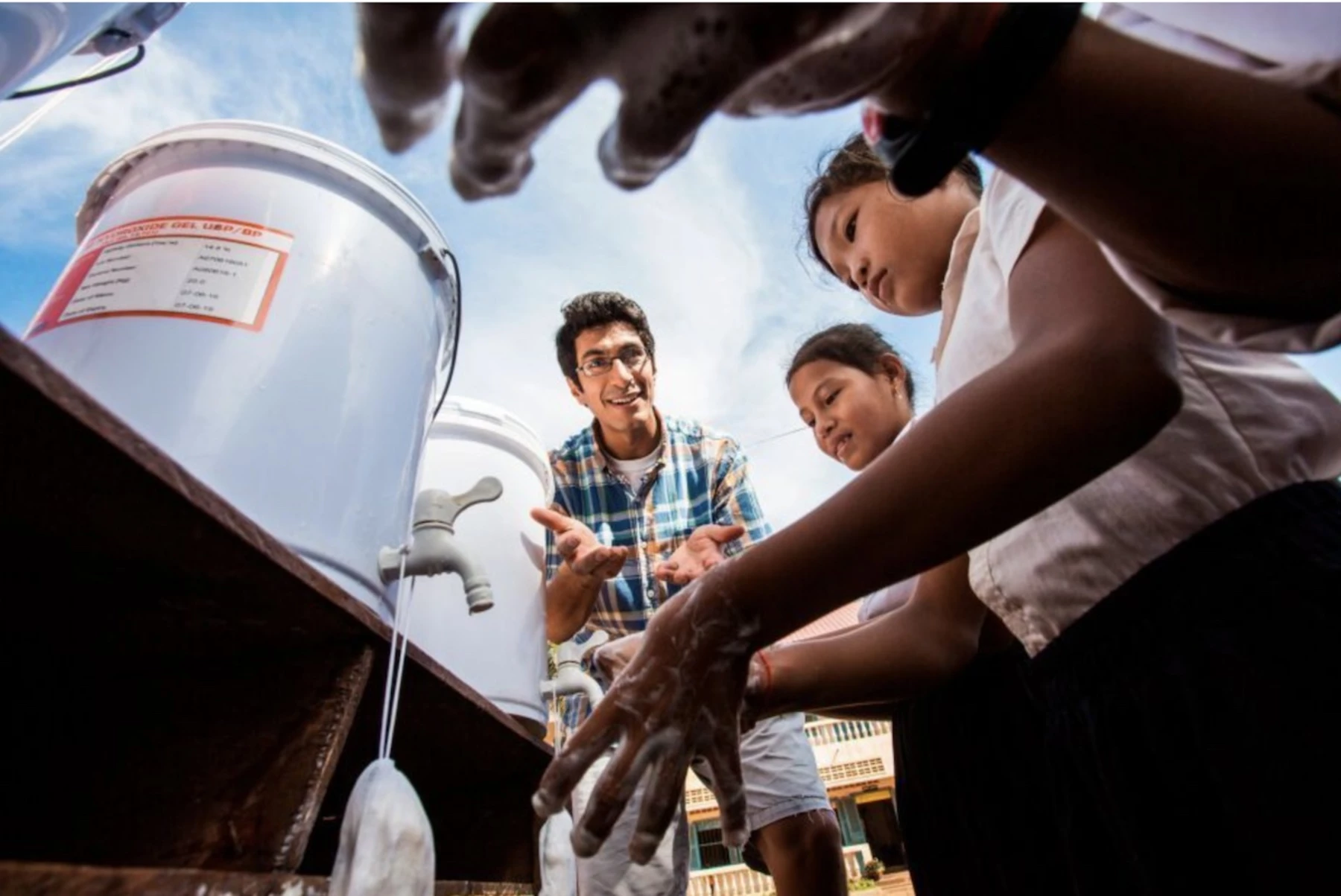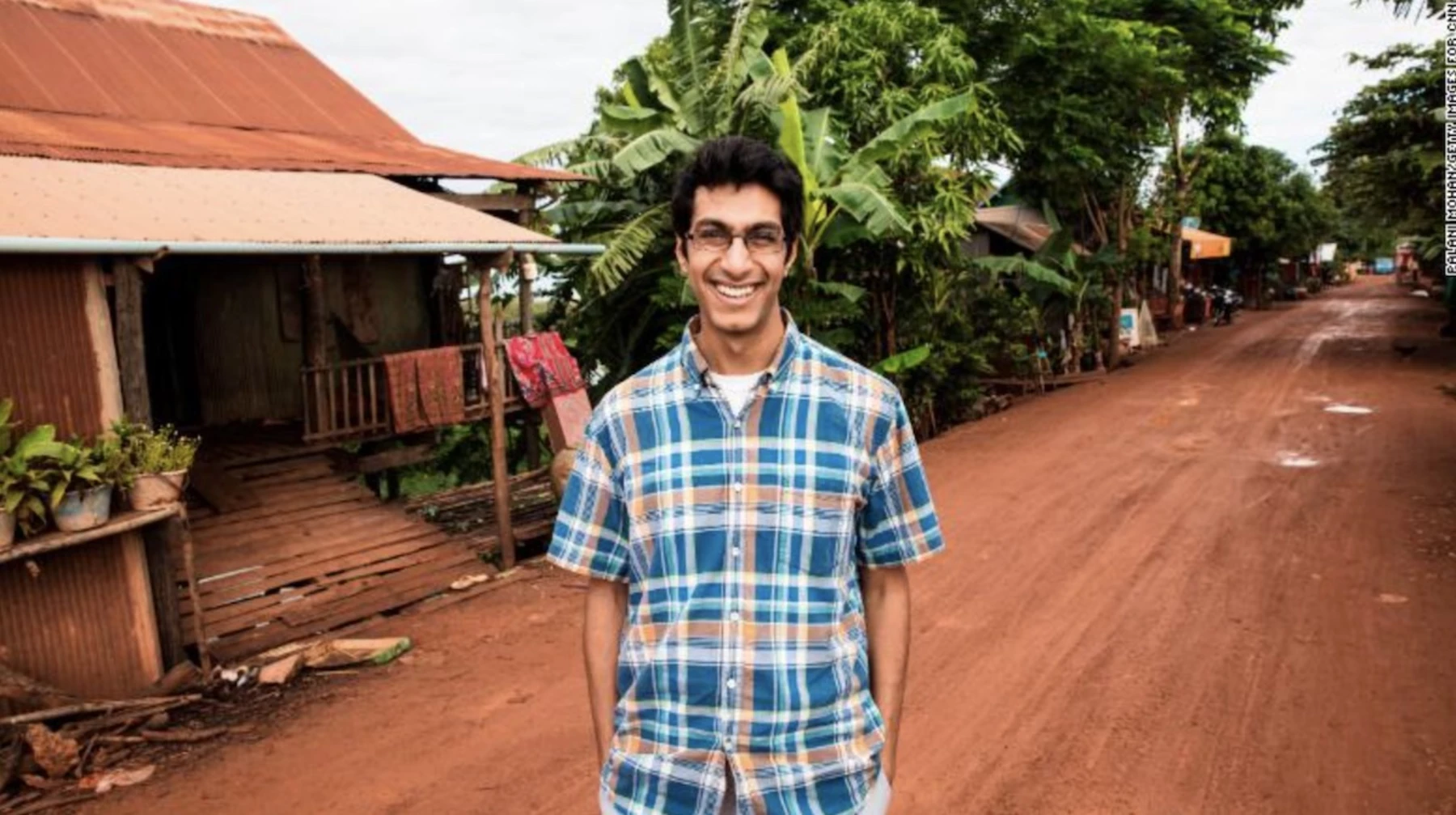We invite diverse voices to contribute to our blog. The opinions in this blog reflect the personal views of the author and not One Young World.
One Young Word’s Lead2030 Challenge changed our organisation forever.
Eco-Soap Bank is a non-profit organisation with a simple idea: employ women to recycle leftover soap from factories into new bars of soap for children and refugees. In short, our mission is to save lives.
Transforming Eco Soap Bank by winning the Lead2030 Challenge
In 2022, we were selected as the winner of the Lead2030 Challenge for SDG6, Water and Sanitation, sponsored by Reckitt, and have never been the same since.

We were granted USD 50,000 and were given 12 months of access to leaders and executives at Reckitt, one of the world’s most wide-reaching health and hygiene companies, to learn from.
Part of what social entrepreneurs need to transform potential energy into kinetic energy is simple: Capital. Dollars and cents. But funding isn’t everything, especially if there isn’t a plan behind it.
How to make an impact with $50,000
After ten years of working in partnership with thousands of non-profit peers and other groups on WASH and healthcare outreach programmes, I’ve noticed a concerning trend: they do not invest in a resilient and predictable business model. The question is not how to use $50,000 — it’s how to transform it into $5 million and make an even greater impact.
Instead, these groups often find themselves on the ‘hamster wheel’ of fundraising year after year, just trying to make ends meet. People burn out, and organisations disappear.
Grants as a long-term investment, not a short-term impact
No matter the size of a grant, it will deplete one day. The river will always run dry.
Grant recipients should use capital to invest in their future financial sustainability, not just short-term operations. That can be philosophically difficult to swallow. Sometimes the pressure as a social entrepreneur to make as much impact now is astounding, particularly considering the weight of today’s issues. The burden is real.
But, I come from a different perspective: our world needs resilient organisations working to deliver resilient outcomes. Outcomes and solutions that will last decades.
Eco-Soap Bank used $50,000 in funding to secure two pieces of recycling equipment, which allowed our organisation to recycle three times as much soap as before and break even from core operations faster. Without it, we would have never had access to that kind of capital to make this investment. It enabled us to expand our partnerships with soap companies to receive more soap to recycle, and we knew just where to start.

Leverage awards into lasting partnerships
For us, the appeal of the Lead2030 programme, sponsored by Reckitt, extended beyond the grant funding and mentorship. Globally, it is estimated that soap factories will generate 25,000 metric tonnes of unavoidable soap byproducts worldwide, a natural result of the soapmaking process. Partnering with Reckitt to recycle soap and save lives was transformational for our budding organisation.
We all have limited bandwidth, and entrepreneurs who seek grants and awards should be selective about which programmes they pursue and chase the opportunities that have the potential to turn into long-term partnerships.
After all, remember SDG17? Partnerships will get us to the goal, not one-time projects.
After dozens of exploratory calls and scoping discussions with Reckitt about their supply chain, we’re honoured to say that we’ve integrated our operations within Reckitt to help transition their global operations into zero-bar-soap-waste manufacturers— saving lives every day with recycled soap.

The quadruple bottom line: people, planet, profits, and partnerships
Creating a partnership design that simultaneously provides real business value and impact is the key to sustainable corporate partnerships that make real progress towards the SDGs.
However, the way nonprofits and companies operate can be radically different. We must speak the language of value, cost-savings, and efficiencies when working with established companies. Take, for example, what we have been able to do with Reckitt:
- We’ve been able to collect 50 tonnes of soap byproducts, helping Reckitt save money on disposal costs
- We’ve leveraged this soap into jobs for 25 marginalised women without access to employment
- We’ve recycled over 500,000 bars of soap, which will be sent to Reckitt’s award-winning Dettol Hygiene Quest programme, helping Reckitt save on providing soap samples for over a million children
The overwhelming narrative is that corporations and nonprofit organisations are on opposite sides of the philosophical spectrum. That somehow, the two sides of North Stars point in different directions.
But, as a social entrepreneur looking to partner with corporations, it’s your job to align these disparate stars towards meaningful progress towards the SDGs.
Find out more about Eco Soap Bank’s work by visiting their website and following them on their social media channels: Facebook, Instagram, and LinkedIn.
